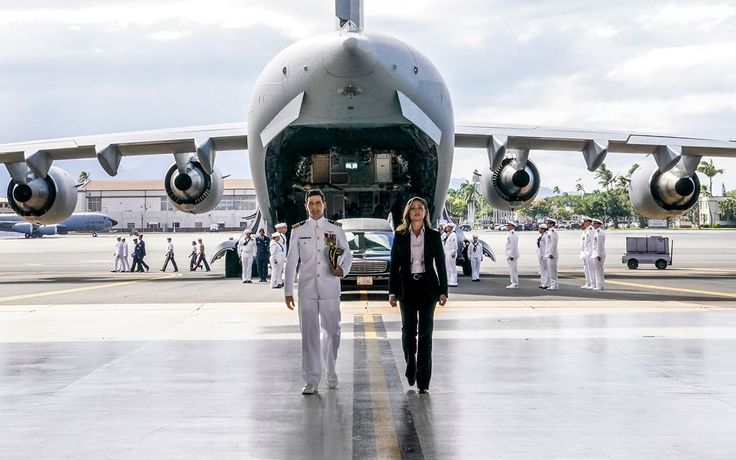
Why This Series Feels So Real
When NCIS: Hawai’i premiered, many expected another procedural show with predictable cases and familiar tropes. Instead, the series surprised audiences—especially those with military backgrounds or real ties to island living. It didn’t just sprinkle military jargon or Hawaiian motifs into the script. It embraced them. It respected them. And it portrayed them with a refreshing authenticity that resonated deeply with viewers. Let’s break down exactly what NCIS: Hawai’i got right—and why it matters.
A Show That Honors Both Service and Culture
While many TV shows struggle to balance realism with entertainment, NCIS: Hawai’i found a sweet spot. It portrays military life with accuracy while celebrating Hawaiian culture with integrity, avoiding stereotypes that often plague portrayals of the islands.
Realistic Depictions of Military Protocol
One of the standout elements of the show is how closely it mirrors actual military operations.
Respect for Chain of Command
Characters follow protocol—not just when it’s convenient for the story but consistently throughout the series. This detail reflects genuine U.S. Navy and DoD chain-of-command practices.
Authentic Use of Rank and Terminology
The writers didn’t treat military terminology like decorative vocabulary. Characters use ranks, call signs, and operational phrases correctly, which is something veterans and active-duty personnel immediately notice.
Military Investigations That Feel Real
Instead of impossible CSI-level tech or over-the-top operations, the cases often reflect actual military investigative challenges—jurisdiction conflicts, classified intel, and cross-branch cooperation.
Accurate Portrayal of Military Families
The show doesn’t just focus on the agents—it highlights the people supporting them.
The Reality of Deployments
NCIS: Hawai’i shows how families cope with long-term separations, juggling everyday responsibilities while partners or parents are away.
Emotional Complexity
The series captures the mix of pride, fear, resilience, and sacrifice that defines military family life—without leaning on melodramatic clichés.
Embracing Island Culture with Respect and Precision
Authentic Use of Hawaiian Language
The show includes Hawaiian words and phrases—correctly pronounced and used in appropriate context. This detail adds cultural depth and signals respect for the local community.
Characters Who Actually Live Hawaiian Values
Rather than treating Hawai’i as an exotic backdrop, NCIS: Hawai’i integrates island values into the characters’ behavior.
Aloha Spirit in Action
The series frequently highlights aloha not as a greeting but as a way of living that emphasizes connection, empathy, and mutual respect.
Accurate Depictions of Island Geography
Yes, the show takes some cinematic liberties, but it still captures the genuine feel of the islands.
Use of Real Locations
Military bases, beaches, local shops, and coastal roads are depicted in ways that locals recognize—something many Hawaii-based productions fail to achieve.
Respect for Sacred Places
Scenes involving sacred grounds or cultural landmarks are handled with dignity and context, avoiding disrespectful storytelling.
Strong Representation of Local Communities
Diverse Casting That Reflects the Real Hawai’i
Hawai’i is ethnically diverse, and the cast reflects that reality rather than Hollywood stereotypes.
Strong Female Lead with Local Ties
Jane Tennant’s character embodies both leadership and cultural sensitivity, reflecting what many island residents value—strength blended with community respect.
Characters From All Backgrounds
Pacific Islanders, Asian Americans, Native Hawaiians, and mainland transplants all appear naturally within the story.
Life in Hawai’i—Without the Glamour Filter
Addressing Cost of Living and Real Lifestyle
The show occasionally highlights the real cost of living in Hawaii—something many tourists don’t fully understand.
Everyday Challenges
Traffic, long commutes, housing shortages, and work-life balance issues all make appearances.
Community Support
Local communities often step in to help one another. The show authentically portrays these small acts of kindness.
Showing Hawai’i as a Strategic Military Hub
Why the Setting Matters
Pearl Harbor and nearby installations are central to U.S. Pacific operations.
International Stakes
Plots involving global tensions and Pacific security reflect real geopolitical importance.
Joint Forces Collaboration
The series accurately shows Navy, Marines, Army, and civilian agencies working together.

A Healthy Blend of Action, Culture, and Emotion
Action Scenes That Reflect True Training
Characters fight like trained professionals—not action-movie superheroes.
Respectful Use of Local Customs
From blessings to cultural ceremonies, the show treats Hawaiian customs with deference.
Conclusion: Why NCIS: Hawai’i Resonates
NCIS: Hawai’i succeeds because it does what few shows dare attempt—it blends military authenticity with genuine cultural representation. Instead of reducing island culture to scenery or treating the military like a caricature, it honors both worlds. And that respect is exactly why viewers—from veterans to local families—connect with the series on a deeper level.
It’s more than crime drama. It’s a bridge between two communities who share the same home, the same land, and often the same sacrifices.
